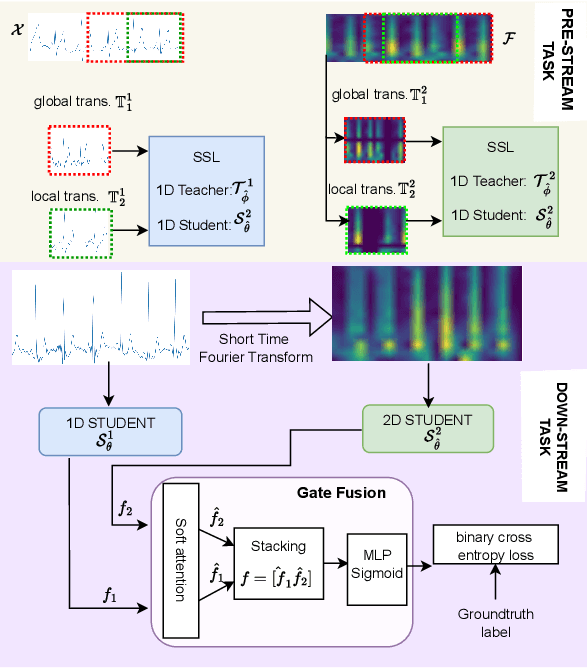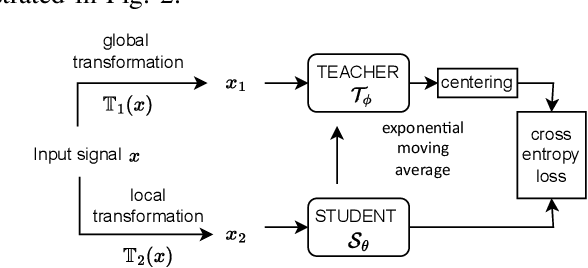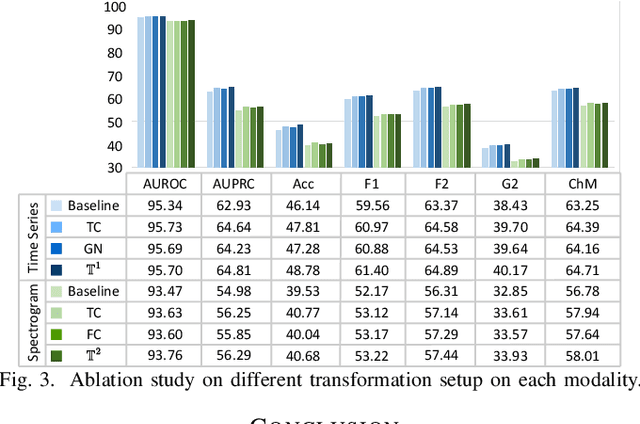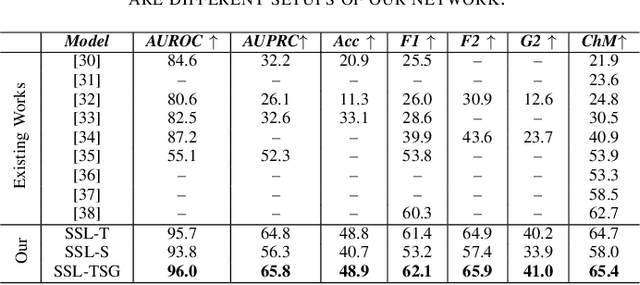Multimodality Multi-Lead ECG Arrhythmia Classification using Self-Supervised Learning
Paper and Code
Sep 30, 2022



Electrocardiogram (ECG) signal is one of the most effective sources of information mainly employed for the diagnosis and prediction of cardiovascular diseases (CVDs) connected with the abnormalities in heart rhythm. Clearly, single modality ECG (i.e. time series) cannot convey its complete characteristics, thus, exploiting both time and time-frequency modalities in the form of time-series data and spectrogram is needed. Leveraging the cutting-edge self-supervised learning (SSL) technique on unlabeled data, we propose SSL-based multimodality ECG classification. Our proposed network follows SSL learning paradigm and consists of two modules corresponding to pre-stream task, and down-stream task, respectively. In the SSL-pre-stream task, we utilize self-knowledge distillation (KD) techniques with no labeled data, on various transformations and in both time and frequency domains. In the down-stream task, which is trained on labeled data, we propose a gate fusion mechanism to fuse information from multimodality.To evaluate the effectiveness of our approach, ten-fold cross validation on the 12-lead PhysioNet 2020 dataset has been conducted.
 Add to Chrome
Add to Chrome Add to Firefox
Add to Firefox Add to Edge
Add to Edge